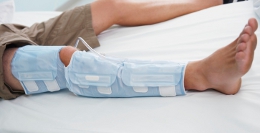The deficiency of phosphorus in humans can cause numerous health complications. The upcoming article provides comprehensive information on the symptoms and ways to overcome this problem.

The most abundantly found mineral in our body is calcium. Phosphorus comes at the second place. Both calcium and phosphorus are required for strong teeth and bones. Phosphorus is associated with numerous health benefits, such as it is highly useful for the treatment of rickets, fractures, brittle teeth, and gum disorders. It is also needed for the normal functioning of the kidney, appropriate transmission of nerve impulses, and utilization of fats, carbohydrates, and proteins for the normal growth and repair of body cells.
As phosphorus is a part of DNA and RNA, it helps in the process of energy formation as well. It is also known to maintain good cell health, thus, speeding up the healing process of burns and injuries. It is also known to prevent certain cancers.
As there are so many bodily functions that depend upon the levels of phosphorus in the body, its deficiency can have a negative impact on the health of a person. Mentioned below are a few symptoms followed by ways to overcome it.
Symptoms
☛ Almost 85 percent of the phosphorus in our body is found in the bones and teeth. The remaining is found in the blood; muscles; organs such as brain and kidney; and fluids in and around the body cells.
☛ Deficiency of this mineral can result in a number of symptoms and diseases. Some of the commonly experienced symptoms are:
- Weak bones and teeth
- Tiredness
- Reduction in appetite
- Pain and stiffness in the joints
- Lack of energy
- Occurrence of infections
- Confusion
☛ Besides these symptoms, there are numerous other diseases which can occur if there is an imbalance in the calcium-phosphorus reserves of the body. Such a deficiency can lead to diseases, such as arthritis, rickets, pyorrhea, gum disorders, and decaying teeth.
Ways to Overcome Phosphorus Deficiency
✔ The recommended dietary intake of phosphorous according to the Institute of Medicine recommendations is as follows:
» Infants and Children:
- 0 to 6 months: 100 milligrams per day (mg/day)
- 7 to 12 months: 275 mg/day
- 1 to 3 years: 460 mg/day
- 4 to 8 years: 500 mg/day
- 9 to 18 years: 1,250 mg/day
» Adults: 700 mg/day
» Pregnant or Lactating Women:
- Younger than 18: 1,250 mg/day
- Older than 18: 700 mg/day
✔ Phosphorus is found in a number of food items. If these are included in one's daily diet in appropriate quantities, it can help in eliminating its deficiency.
✔ Foods that contain phosphorus are milk, yogurt, cheese, tuna, pork, lobster, sunflower seeds, pine nuts, bran flakes, peanut butter, whole wheat bread, white bread, rice, noodles, potatoes, corn, peas, broccoli, French fries, soda beverages, and milk chocolate. Along with these food items, taking multivitamin supplements also helps.
✔ To overcome the problem of deficiency, the process of phosphorus absorption in the body has to be fully understood. Absorption of phosphorus takes place as inorganic phosphates in the small intestines.
✔ Phosphorus, which is present in an organic combination like phytic acid, is decomposed by water to form inorganic phosphate before its absorption takes place.
✔ As phytase, an enzyme, is not found in the digestive juices of humans, phytin phosphorus can be only slightly absorbed. That is why phosphorus present in meat, eggs, and milk is absorbed much more easily when compared to legumes or cereals (these are mostly in phytic acid form).
To conclude, it is imperative to consume a diet, which fulfills the phosphorus requirements of the body. Even the calcium and vitamin D intake should be optimum, as it has a direct impact on the phosphorus levels of the body.
Disclaimer: This Buzzle article is for informative purposes only and should not be used as a replacement for expert medical advice.


 The most abundantly found mineral in our body is calcium. Phosphorus comes at the second place. Both calcium and phosphorus are required for strong teeth and bones. Phosphorus is associated with numerous health benefits, such as it is highly useful for the treatment of rickets, fractures, brittle teeth, and gum disorders. It is also needed for the normal functioning of the kidney, appropriate transmission of nerve impulses, and utilization of fats, carbohydrates, and proteins for the normal growth and repair of body cells.
The most abundantly found mineral in our body is calcium. Phosphorus comes at the second place. Both calcium and phosphorus are required for strong teeth and bones. Phosphorus is associated with numerous health benefits, such as it is highly useful for the treatment of rickets, fractures, brittle teeth, and gum disorders. It is also needed for the normal functioning of the kidney, appropriate transmission of nerve impulses, and utilization of fats, carbohydrates, and proteins for the normal growth and repair of body cells.